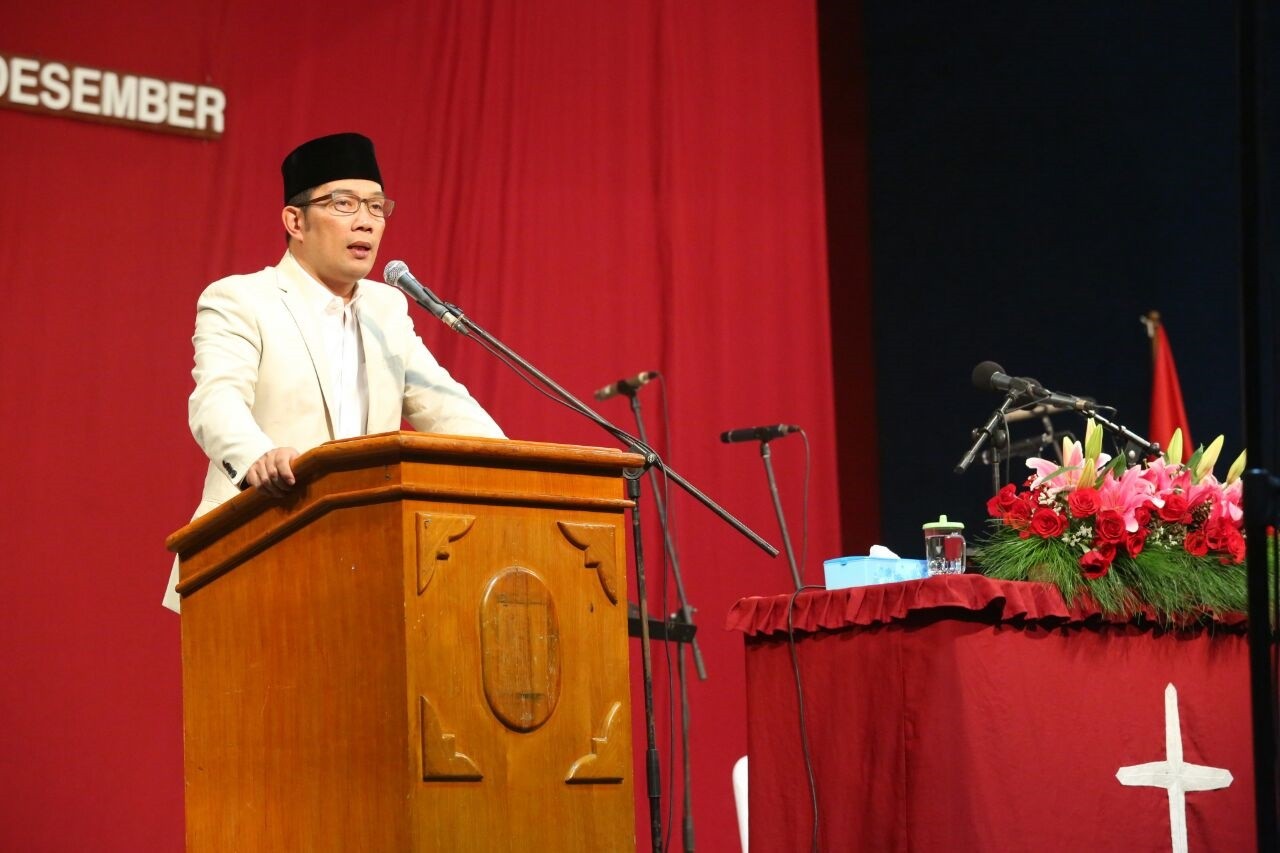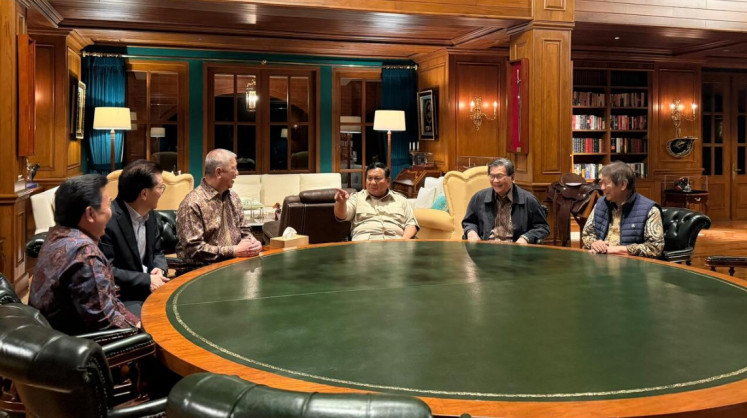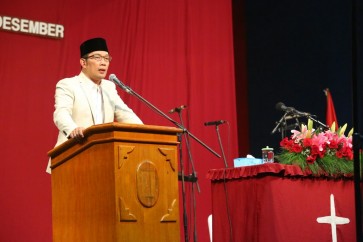Popular Reads
Top Results
Can't find what you're looking for?
View all search resultsPopular Reads
Top Results
Can't find what you're looking for?
View all search resultsA Muslim way of congratulating Christmas
People of the same national identity should ideally preserve the brotherly bonds irrespective of their differences in faiths and religious beliefs.
Change text size
Gift Premium Articles
to Anyone
I
t has always been an annual occurrence that when Christmas comes, Muslims in Indonesia debate among themselves the permissibility of participating in or even congratulating their Christian fellow countrymen on that festive day.
Indonesian Muslims are generally divided into three groups in this regard. The first are the conservatives who reject it wholeheartedly, the second are the liberals who take the opposite stand, while the third are moderates who differentiate between participating in the celebration and simply wishing Christians a happy celebration. The last group seems more rational and acceptable in an Indonesian context.
The conservative position looks strange and awkward on many grounds. First, an example from the Holy Prophet Muhammad has shown that on a particular occasion he interacted with Christians in a very respectful manner. In one prophetic tradition, the Prophet was said to have received a Christian delegation from Najran, where he hosted them inside the mosque. And when the time to pray came, he allowed them to say their prayers in it.
Second, on moral and social grounds, the conservative stance seems to be overwhelmingly xenophobic and apologetic in nuance. The truth is that, what they have said and expressed concerning Christmas in particular and Christians in general are barriers that hinder a better communication between people of different faiths. People of the same national identity should ideally preserve their brotherly bonds irrespective of their differences in faith and religious beliefs.
This conservative view reflects the idea that Christians are seemingly not part of the larger Muslim community, as if there is animosity between the two parties. Views such as these are relevant only in time of war and invasion.
It is worth noting that among the leading Muslim scholars that advocated such a polemical position is 14th century theologian, Ibn Taimiyah. In his copious writings, he often attacked all forms of cooperation by Muslims with Jews, Christians and other non-Muslims in defense of the vision of an ideal Islamic society he had constructed. Due to the prevailing conflict between Muslims and non-Muslims at the time, he produced a discourse that assumed that non-Muslims were all enemies.
Constructions such as this are no longer relevant in our Indonesian context, where it is simply unimaginable to assume that our fellow Christian countrymen are people of war. On the contrary, what is logical is to treat them, like anyone else, as ordinary neighbors. They are nationalists too who are willing to defend our national interests. The fact that there is no animosity, let alone war, between Muslims and non-Muslims in this country means that Christians are friends and brethren who should be treated as equal citizens.



















